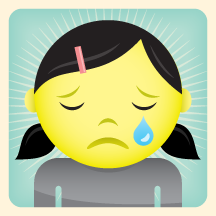A word about PTSD, rape culture and not believing the victim.
Abuse follows similar patterns. Whether it is domestic violence, bullying abuse or sexual harassment and rape. And that pattern is that we like to blame the victim.
A woman who has been abused by a partner has to explain why she didn’t stop him or leave and why she tolerated it if it was so bad. The problem isn’t that the guy abused her. The problem is that she allowed him to abuse her. People who have never been in an abusive relationship don’t understand that the dynamic isn’t as easy as that. You can’t just walk away. The conditioning is so intense and unreal that your ability to rationally choose your actions is non-existent. I know. I’ve experienced it. It was like being a ping pong ball in a hurricane. My actions at the time were incredibly rational given how irrational what was happening to me was. I was lucky. I was able to get away. But it was probably one of the hardest things I’ve ever done and I’m pretty sure the only reason I did get away is because he lived in another state and didn’t actually have day to day access to me. I shudder to think what would have happened had he been local. I honestly don’t know if I would have been able to pull away from him, despite doing everything right to get away. Unless you experience something like this, you have no real idea of just how much effort reporting and asking for help actually takes.
The problem is that it isn’t just grown women we ask these questions of. We also ask the same questions of children who are being bullied. We somehow expect them, despite the fact that they are children, why they didn’t have the presence of mind and the skills to stop a bully. Our questions to them are never about the bully. They are about what the victim did to provoke the bully. Why do they tolerate it? Why do they not report it? Why? We would. Wouldn’t we? The fact they didn’t report or have trouble talking about it makes their reporting incomplete and so they are unreliable witnesses and perhaps lying. At least that’s what the bully wants you to think. Their actions were justified, clearly. It is the victim who caused them to act poorly.
The same things happen with rape victims. The questions are never about the rapist and why they raped. It’s what did the victim do wrong to put themselves in a position that they got raped? What were they wearing? Where were they? Why didn’t they use common sense and not allow themselves to be in such a vulnerable position? We even ask these questions of children who were sexually abused by a parent! Kids who by definition are not capable of defending themselves against an adult are blamed for their abuse. They should have told someone and when they do, their motives and truthfulness is questioned.
There is a wonderful essay by Andrea Grimes – what would it take for us to believe an abuse victim. – http://rhrealitycheck.org/article/2014/02/04/make-believe-survivor-childhood-sexual-abuse/ In it, she talks about how we, the public, seem to need a perfect victim before we will allow discussion into and about a societal problem – like the rape culture or the childhood sexual abuse problem or bullying.
I think these questions and the blaming of the victim as tell us more about us then they do about the victim. We ask these questions to assure ourselves that WE would never fall prey to such abuse. WE would be smart enough to avoid being a victim. If WE can blame the victim, then WE aren’t at risk for becoming a victim ourselves. Except that in reality, we aren’t safe. Rape can and does happen to just about anyone. Domestic violence can and does occur to just about anyone in every social class. Childhood abuse and sexual abuse can and does happen to kids from a wide variety of backgrounds.
If we are going to start fixing these problems we have to stop distancing ourselves from the victims. We have to understand that there but for fortune go you or I. When you hear about abuse, and you start to question why the victim didn’t behave differently. Stop. And instead listen to them and accept that they aren’t stupid and they aren’t to blame for what happened to them. Once we as a society truly understand that, we can start focusing on the real problem, which is how to get abusive people to stop targeting the rest of us!


I wanted to share this post over at Camels With Hammers – he touches on many of the same things in this article – the victim blaming is about preserving our sense of security at all costs. And for the sake of victims, we need to be more realistic – http://www.patheos.com/blogs/camelswithhammers/2013/07/vulnerability-victim-blaming-and-the-just-world-fallacy/